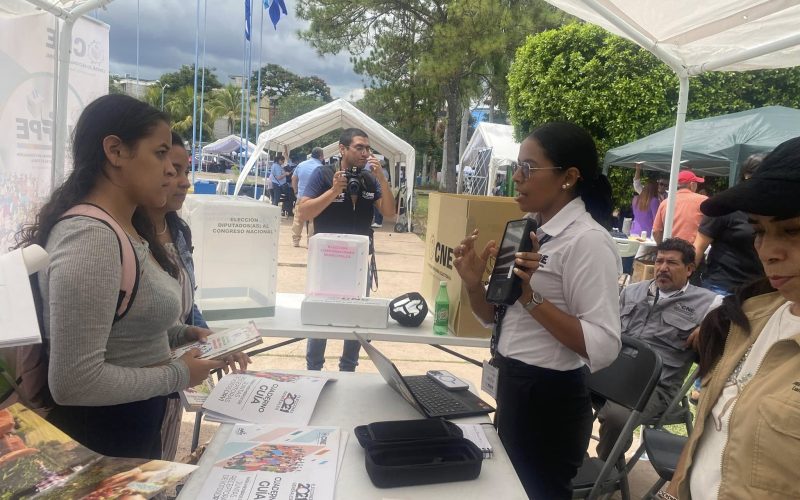The recent intervention by the Technical Criminal Investigation Agency (ATIC) in the National Electoral Council (CNE) has created a climate of high political tension in the country. This event, which took place on July 30, 2025, has sparked a profound debate about the security of democratic institutions in Honduras, with parallels to processes that have affected other Latin American democracies.
The functioning of the judicial system and its explanations
The intervention, led by Attorney General Johel Antonio Zelaya, came after a court order authorized the seizure of key documents from the CNE as part of an investigation into an alleged conspiracy to sabotage the general elections scheduled for November 30. The operation was initially intended to clarify possible irregularities and prevent electoral manipulation. However, the measure has been described by several sectors as a direct attack on the autonomy of the institution responsible for organizing the elections.
The head of the CNE, Cossette López, issued a public statement criticizing governmental influence that she claims threatens the autonomy of the institution and the clarity of the voting procedure. López asserts that this action undermines the structure of the institution, charging the judiciary with overreaching actions and lacking the essential assurances to uphold respect for voting and constitutional laws.
Responses and worries in the political landscape
The incident has sparked strong reactions within the country’s political and social spheres. Members of the CNE have denounced the judicial intervention as intimidating, with pressure affecting the body’s ability to carry out its work freely and objectively.
Several analysts agree that the measure reflects a worrying pattern of growing interference by the judiciary in the electoral sphere, which could compromise the legitimacy of the electoral process and, ultimately, democracy itself. Critics of the operation have pointed to parallels with the model of “institutional hijacking” that, according to some experts, undermined democracy in Venezuela.
In that country, the constant intervention of the judicial authorities in electoral and political affairs ultimately eroded the independence of institutions and facilitated the consolidation of an authoritarian regime. For many observers, the situation in Honduras resembles the first steps toward a similar institutional crisis, raising fears about the country’s future and the possibility of democratic regression.
A scene of division and organizational conflicts
The political climate in Honduras is characterized by polarization, fueled by increasing public dissatisfaction and distrust in institutions, which worsens the situation. International blockades and accusations of corruption within the CNE, along with political pressure on the electoral body’s members, create a scenario of instability that might threaten the integrity of the elections and democratic coexistence.
Calls for reflection and unity have come from different sectors of society to prevent such interventions from undermining confidence in institutions. The voices of the political opposition, civil society organizations, and international observers have expressed concern about the growing instability and the lack of a fully transparent electoral process.
The challenge to democratic systems and administration
The action taken regarding the CNE signifies a pivotal moment in a succession of occurrences that underscore a deep examination of the democratic systems in Honduras. This advancement contributes to multiple obstacles confronting the nation, including governance issues, election transparency, and adherence to constitutional norms. Although judicially defended as a means of regulation and supervision, both political and social groups view it as an intrusion that weakens election credibility and the influence of the populace.
In this context, Honduran democracy faces a critical moment. The country’s political stability depends on the judicial system’s ability to guarantee impartial and transparent electoral processes. Signs that this independence is being undermined could have lasting implications, not only for the November elections, but also for the relationship between institutions and society.
Honduras’ democratic challenges
This installment underscores the conflicts within the Honduran political framework, which has been experiencing polarization and distrust for a long time. The involvement in the CNE emphasizes the fragile equilibrium between governmental entities and the concern over manipulation and the consolidation of authority. The next several months will be vital in assessing if Honduras can surmount these challenges and preserve the people’s will, or if, conversely, a form of authoritarian dominance will arise, potentially weakening the nation’s democratic roots.
